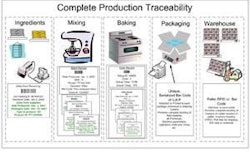"No manufacturer or supplier should fear an educated consumer." This makes sense, but should you fear a consumer whose education may not be entirely based on fact or science?
The quote appears on AllNaturalPetCare.com , a new site about natural pet products. Another page says the site is based on "verifiable information." Judging by correspondence with the site's owner, Melody McKinnon, I take her at her word. Unfortunately, I don't believe that standard holds true for a great deal of the information consumers find online.
Good and bad
It's difficult to imagine conducting our jobs or lives without search engines, mapping sites, online calculators and myriad other websites and online tools that make modern life easier and vastly expand the range and depth of information we can quickly access.
The Internet has also become an invaluable marketing means. From ads to articles to brand websites to, yes, consumer blogs, pet owners can find plenty of positive information online about your products. "I think there is good in end users gaining information from the Internet," says Roman Versch, president of the Pet Depot chain of pet stores (based in Glendora, California, USA) and Seasons Pet Food.
But most of us can also cite numerous instances of online information we know to be patently false, whether about a specific product or company, the industry in general or another matter entirely. In fact, a whole category of publishing has cropped up about Internet misinformation, myths and rumors-for example, Snopes.com, a popular site that exists solely to debunk those.
Most shoppers use it
Fact or fiction, scientific or conspiracy theory, altruistic or agenda-driven-no matter how you classify it, Internet content will only continue growing. The same is true for consumers seeking information online. According to the 2008 HealthFocus Trend Survey), 70% of US shoppers of all ages use the Internet.
So how can you help make sure they find the facts about petfood? I believe the answer is for the industry to flood consumers with our own information. Not just marketing-oriented sites; I'm talking science-based information, in laymen's terms, explaining pets' nutrient needs, the types of ingredients available to meet those needs, how-and why-these ingredients are used in petfoods (for starters). The "why" is very important, because today's consumers want and need to understand the reasons behind decisions companies make about the products they're purchasing.
Ideas to try?
One way to disseminate such information might be to partner with veterinarians and related organizations. (For example, the Veterinary Information Network, though a members-only portal, works with what it calls "allied industry.") Vets are on the front lines, dealing directly with pet owners asking which foods to feed their pets, wondering if a pet illness is due to diet or a specific product-and often the vets themselves are struggling for answers.
Interestingly, Snopes.com has a category devoted strictly to food-related rumors and disinformation. Perhaps our industry needs to band together to create a similar site about petfood? (If you're interested in pursuing this idea, please e-mail me at [email protected] .)
But first, start with your own products and website. "Transparency is the byword these days with human food, and it should be for petfood as well," says Marion Nestle, PhD, an author, bloggerand professor of nutrition, food studies and public health at New York University in New York, New York, USA.
Easy to say but difficult to achieve, especially in these highly litigious times. You have not only serious legal concerns but also ones regarding proprietary issues and competitive secrets. But consumers won't stop seeking, even demanding, more information about what they're feeding their pets. And if you don't provide it, they'll find it elsewhere, on that vast Internet.



















